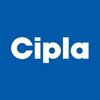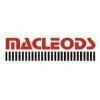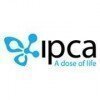


i
Hetero
Work with us
![]()
Filter interviews by
Hetero Interview Questions and Answers
130 Interview questions
Effective batch planning involves resource allocation, scheduling, and quality control to optimize production efficiency.
Assess resource availability: Ensure all necessary materials and equipment are ready for the batch.
Define production schedule: Create a timeline for when each batch will be produced, considering lead times.
Quality control measures: Implement checks at various stages to maintain product standards...
Deviation investigation tools help identify, analyze, and resolve discrepancies in processes or products.
Root Cause Analysis (RCA): Identifies the fundamental cause of deviations, e.g., using the 5 Whys technique.
Failure Mode and Effects Analysis (FMEA): Assesses potential failure points and their impact, e.g., in manufacturing processes.
Corrective and Preventive Actions (CAPA): Implements solutions to prevent rec...
The transformer primary load refers to the electrical demand placed on the primary winding of a transformer.
The primary load is determined by the connected devices on the secondary side.
For example, if a transformer supplies power to a motor, the motor's power requirement defines the primary load.
The primary load affects the current flowing through the primary winding and the voltage drop across it.
Understanding p...
Various types of circuit breakers are used in electrical engineering, including MCB, MCCB, and ACB for different applications.
MCB (Miniature Circuit Breaker) - Protects against overloads and short circuits in residential applications.
MCCB (Molded Case Circuit Breaker) - Suitable for industrial applications, handling higher current ratings.
ACB (Air Circuit Breaker) - Used for high voltage applications, providing pr...
I led a deviation investigation on a quality control failure in a manufacturing process, ensuring compliance and corrective actions.
Identified the deviation during routine quality checks, where a batch failed to meet specifications.
Conducted root cause analysis using the 5 Whys technique, revealing a malfunction in the calibration of equipment.
Collaborated with cross-functional teams, including production and qual...
Change control is a systematic approach to managing changes in a project or process to minimize disruption and ensure quality.
Identify the change: Recognize the need for change, such as a new requirement or a problem that needs addressing.
Document the change: Create a change request form detailing the nature of the change, its impact, and the rationale behind it.
Review and assess: Evaluate the change request by st...
I have experience with various instruments, including the oscilloscope, multimeter, and spectrum analyzer for electronic testing.
Oscilloscope: Used for visualizing electrical signals, allowing me to analyze waveforms and troubleshoot circuit issues effectively.
Multimeter: Proficient in using digital multimeters for measuring voltage, current, and resistance in electronic components and circuits.
Spectrum Analyzer: ...
Work safety involves practices and regulations to prevent accidents and injuries in the workplace, ensuring a safe environment for all.
Risk Assessment: Identifying potential hazards in the workplace, such as slippery floors or exposed electrical wires, and implementing measures to mitigate them.
Personal Protective Equipment (PPE): Ensuring employees wear appropriate gear, like helmets and gloves, to protect agains...
Indicators in analysis help assess performance, trends, and outcomes across various fields, guiding decision-making processes.
Key Performance Indicators (KPIs): Metrics like sales growth, customer satisfaction, and employee turnover.
Financial Ratios: Examples include liquidity ratios, profitability ratios, and debt-to-equity ratios.
Statistical Indicators: Mean, median, mode, and standard deviation used in data ana...
My favorite machine is the vertical form-fill-seal (VFFS) machine, known for its efficiency in packaging various products.
VFFS machines create bags from a flat roll of film, filling them with products like snacks or powders.
They are highly versatile, accommodating different sizes and shapes of packages.
The speed of VFFS machines can reach up to 120 bags per minute, enhancing production efficiency.
Examples include ...
Hetero Interview Experiences
256 interviews found
I appeared for an interview in Jan 2025, where I was asked the following questions.
- Q1. Drug excipients compatibility
- Q2. Specifications content
- Q3. PDR Content and process of Drug product development
- Q4. Packaging development and selection
- Q5. Method validation content
Interview Preparation Tips
I applied via Approached by Company and was interviewed in Dec 2024. There were 3 interview rounds.
Verbal aptitude
Numerical aptitude
Logical reasoning
Spatial aptitude
It seems like you're looking for information on Heteros, a pharmaceutical company, as well as some explanation of aptitude tests.
About Heteros Company
Hetero is a multinational pharmaceutical company based in India, founded in 1993. They specialize in developing and manufacturing active pharmaceutical ingredients (APIs) and finished dosages for various therapeutic areas, including HIV/AIDS, oncology, and hepatitis.
Some recommended practice problems for coding tests, similar to those asked in top tech companies like Google, Facebook, and Amazon, can be found on platforms like GeeksforGeeks 1. They offer a comprehensive list of company-wise coding practice questions.
Additionally, consider exploring resources like:
GeeksforGeeks Courses: Language
• Foundation Courses and DSA to Development - Coding Guide course.
• DSA Self-Paced Course: Master Data
Structures and Algorithms from basic to advanced levels.
Remember to practice coding regularly and review the concepts to increase your chances of success in Hetero's coding test
Interview Preparation Tips
- To better suggest topics and cou
(2 Questions)
- Q1. Good opportunity and good times and good health good people
- Q2. Good offer letter in this group
Quantity control department
(2 Questions)
- Q1. About subject what you studied
- Q2. Basic knowledge about work related
I applied via AmbitionBox and was interviewed in Nov 2024. There was 1 interview round.
(2 Questions)
- Q1. Technical aptitude test
- Q2. Technical about job knowledge
Interview Preparation Tips
I appeared for an interview in May 2025, where I was asked the following questions.
- Q1. What are the tools used in deviation investigation?
- Ans.
Deviation investigation tools help identify, analyze, and resolve discrepancies in processes or products.
Root Cause Analysis (RCA): Identifies the fundamental cause of deviations, e.g., using the 5 Whys technique.
Failure Mode and Effects Analysis (FMEA): Assesses potential failure points and their impact, e.g., in manufacturing processes.
Corrective and Preventive Actions (CAPA): Implements solutions to prevent recurren...
- Q2. Change control guideline?
- Q3. Steam sterilizer guideline?
- Q4. Fogger validation procedure.
- Q5. What points to consider for batch planning for a week?
- Ans.
Effective batch planning involves resource allocation, scheduling, and quality control to optimize production efficiency.
Assess resource availability: Ensure all necessary materials and equipment are ready for the batch.
Define production schedule: Create a timeline for when each batch will be produced, considering lead times.
Quality control measures: Implement checks at various stages to maintain product standards, suc...
I appeared for an interview in Jan 2025.
Maths Resoning Technical Mcq
(2 Questions)
- Q1. Introduction Yourself
- Ans.
I am a recent graduate with a degree in biology and a passion for research. I have experience in lab work and data analysis.
Recent graduate with a degree in biology
Passionate about research
Experience in lab work and data analysis
- Q2. Mpharm project discussion
I appeared for an interview in Apr 2025, where I was asked the following questions.
- Q1. Hazards symbols and safety chats
- Q2. Cpr training and safety training
- Q3. Explain the work safety
- Ans.
Work safety involves practices and regulations to prevent accidents and injuries in the workplace, ensuring a safe environment for all.
Risk Assessment: Identifying potential hazards in the workplace, such as slippery floors or exposed electrical wires, and implementing measures to mitigate them.
Personal Protective Equipment (PPE): Ensuring employees wear appropriate gear, like helmets and gloves, to protect against wor...
- Q4. Housekeeping and work place safety
- Q5. Extinguisher handling
- Q6. Un safe condition and un safe acts
I appeared for an interview in Feb 2025.
(1 Question)
- Q1. Machine related question
(1 Question)
- Q1. Salery discussion
I applied via Walk-in and was interviewed in Nov 2024. There were 2 interview rounds.
(1 Question)
- Q1. Department related questions..
(1 Question)
- Q1. How much hike you want..?
Top trending discussions






Hetero Interview FAQs
Some of the top questions asked at the Hetero interview -
The duration of Hetero interview process can vary, but typically it takes about less than 2 weeks to complete.
Tell us how to improve this page.
Hetero Interviews By Designations
- Hetero Junior Officer Interview Questions
- Hetero QC Chemist Interview Questions
- Hetero Assistant Manager Interview Questions
- Hetero Executive Interview Questions
- Hetero Chemist Interview Questions
- Hetero Junior Chemist Interview Questions
- Hetero Quality Controller Interview Questions
- Hetero Trainee Research Associate Interview Questions
- Show more
Interview Questions for Popular Designations
Overall Interview Experience Rating
based on 269 interview experiences
Difficulty level
Duration
Interview Questions from Similar Companies
Hetero Reviews and Ratings
based on 3.7k reviews
Rating in categories
Hyderabad / Secunderabad
3-8 Yrs
Not Disclosed
|
Officer
817
salaries
| ₹2 L/yr - ₹5 L/yr |
|
Executive
786
salaries
| ₹3.5 L/yr - ₹8 L/yr |
|
Junior Officer
717
salaries
| ₹1.7 L/yr - ₹4.1 L/yr |
|
Chemist
620
salaries
| ₹1.9 L/yr - ₹4.4 L/yr |
|
Assistant Manager
601
salaries
| ₹5.5 L/yr - ₹12 L/yr |

Cipla

Dr. Reddy's

Lupin

Zydus Lifesciences
- Home >
- Interviews >
- Hetero Interview Questions










